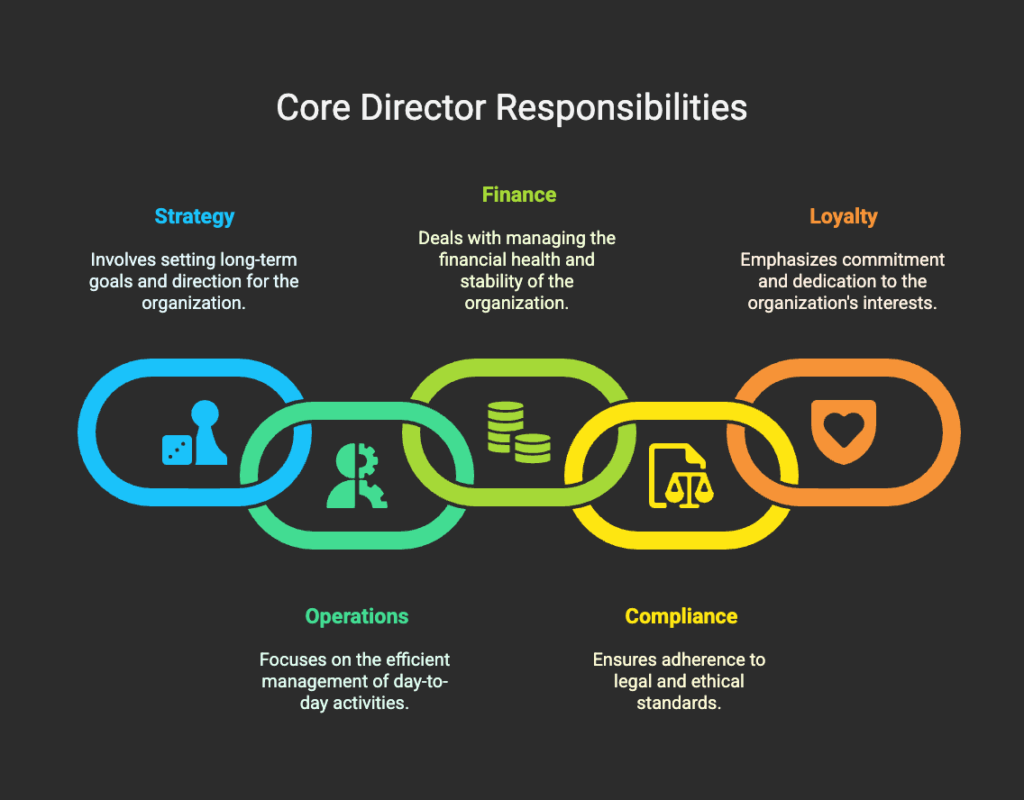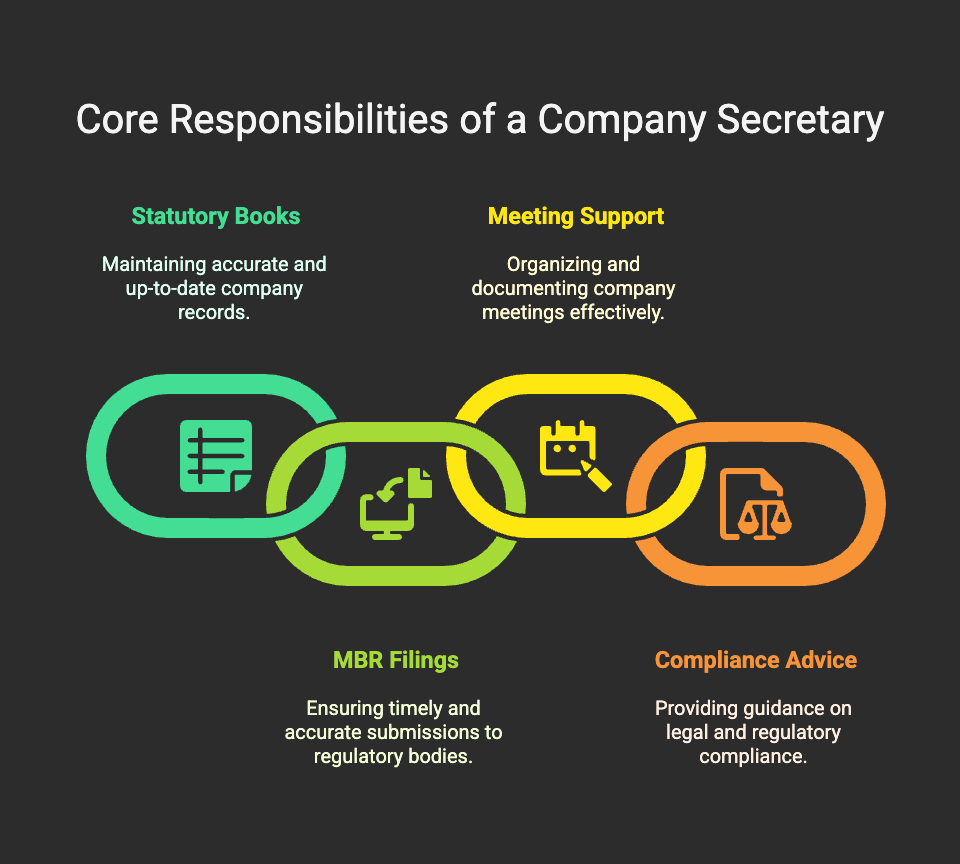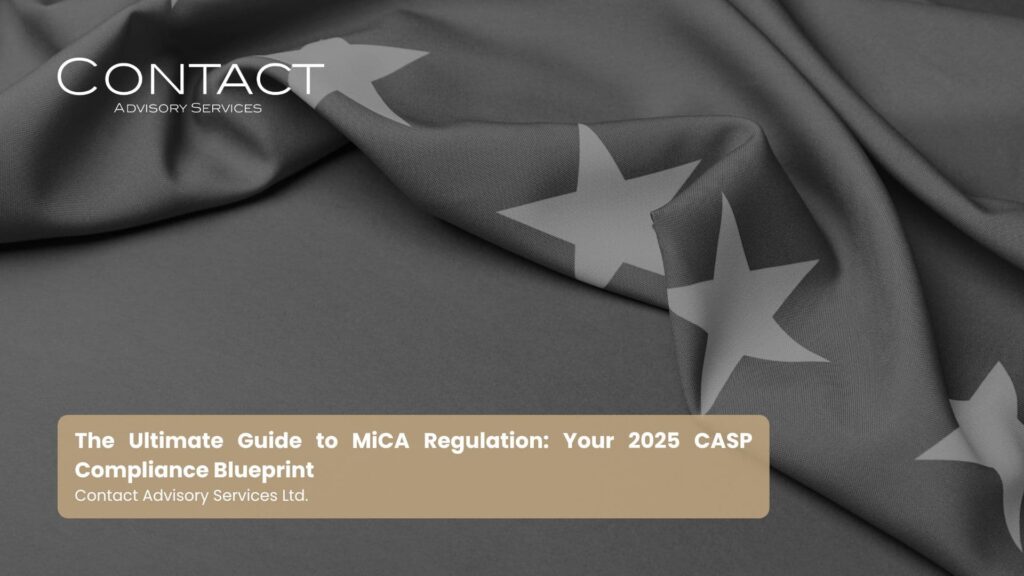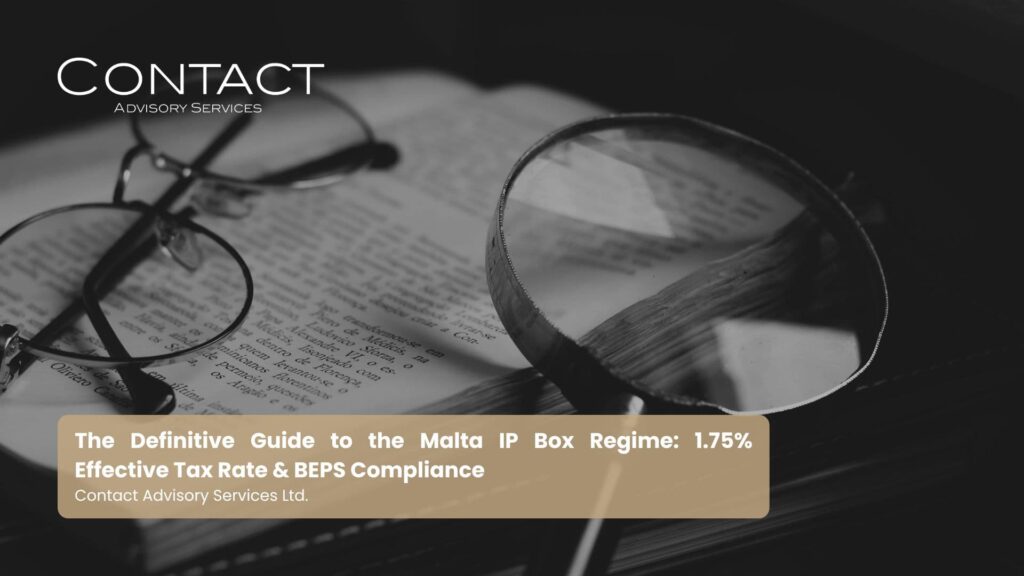Appointing Directors and a Company Secretary for Your Malta Company – Rules & Best Practices
Successfully launching your Malta company involves meticulous attention to several foundational elements. Beyond securing a unique name and understanding share capital, the appointment of key personnel – specifically directors and a company secretary – is a critical step mandated by Maltese law and essential for effective governance. These individuals are the statutory officers responsible for managing the company’s affairs and ensuring its compliance.
But what are the specific rules in Malta regarding who can be a director or company secretary? How many do you need? Is Maltese residency a requirement for these roles? And beyond the legal minimums, what practical considerations and recommendations should you keep in mind, especially regarding local expertise, to ensure smooth operations and adherence to Maltese regulations?
As corporate services consultants at Contact Advisory Services Ltd., we guide businesses through these appointments daily, ensuring compliance with the Malta Business Registry (MBR) and establishing a robust governance framework from day one. This article will provide a clear, comprehensive overview of the rules surrounding the appointment of directors and a company secretary in Malta, covering eligibility, minimum numbers, residency implications, and strategic recommendations for leveraging local expertise effectively.
The Role of Directors: Navigating Your Maltese Company
Directors are the primary decision-makers of a Maltese company, entrusted by the shareholders to manage its business and affairs. Their responsibilities are significant, encompassing both strategic oversight and legal duties.
Key Responsibilities of a Director in Malta:
- Strategic Management: Setting the company’s overall strategy, objectives, and policies.
- Operational Oversight: Supervising the day-to-day running of the business.
- Financial Stewardship: Ensuring proper accounting records are kept, financial statements are prepared, and the company remains solvent.
- Legal & Regulatory Compliance: Ensuring the company complies with all applicable Maltese laws, including the Companies Act, tax regulations, and any industry-specific rules.
- Duty of Care & Loyalty: Acting honestly, in good faith, and in the best interests of the company and its shareholders. They must avoid conflicts of interest.
Understanding these responsibilities is crucial when selecting individuals for directorship roles during your Malta business setup.

Rules for Appointing Directors in Malta:
- Minimum Number:
- Private Limited Company (Ltd): Requires at least one director.
- Public Limited Company (PLC): Requires at least two directors.
- Who Can Be a Director?
- Individuals: Natural persons over the age of 18 (unless otherwise provided by the company’s M&A, but typically 18 is standard).
- Corporate Bodies (Companies): Maltese law permits a company (Maltese or foreign) to be appointed as a director of another Maltese company. However, if a corporate director is appointed, it’s common practice and sometimes advisable for operational clarity to also have individual directors or for the corporate director to appoint an individual to act on its behalf. If a corporate director is the sole director, specific rules apply.
- Disqualifications: Certain individuals are disqualified from being directors, such as undischarged bankrupts, those convicted of certain serious offences, or those subject to a disqualification order by a court.
- No Maltese Residency Requirement (Legally): This is a key point for international businesses. There is no general legal requirement under the Maltese Companies Act for directors of a Maltese company to be resident in Malta. Directors can be of any nationality and reside anywhere in the world.
- Registration with MBR: All directors must be registered with the Malta Business Registry, and their details (full name, residential address, date of birth, nationality, ID/passport number) are publicly available.
The Practicality of Director Residency & Local Expertise
While Maltese law doesn’t mandate resident directors, there are strong practical and strategic reasons why having at least one director with Maltese residency or deep local knowledge can be highly beneficial, particularly for ensuring smooth operations and demonstrating substance in Malta:
- Ease of Local Operations: A Malta-resident director can more easily handle local administrative tasks, attend meetings with Maltese banks or authorities, and sign documents locally, potentially speeding up processes.
- Understanding Local Regulations: Navigating Maltese company law, tax obligations, employment regulations, and specific industry rules is more manageable with on-the-ground expertise.
- Banking Relationships: Some Maltese banks may look more favourably on applications or find the due diligence process smoother if there’s a Malta-resident director with a local track record. This is often a practical rather than a strictly legal preference.
- Demonstrating Economic Substance: For companies seeking to benefit from Malta’s tax system, particularly international businesses, demonstrating genuine economic substance and management control in Malta is increasingly crucial. Having Malta-resident directors actively involved in strategic decision-making within Malta can contribute significantly to this.
- Tax Residency of the Company: The tax residency of a company (and thus its tax obligations) is often determined by where its “effective management and control” is exercised. Having strategic decisions made by directors in Malta strengthens the case for Maltese tax residency.
Recommendation: Even if all initial directors are non-resident, consider the value that a professional Malta-resident director (often provided by firms like Contact Advisory Services Ltd.) can bring, particularly for governance, compliance, and demonstrating substance. This is a common discussion point during the Malta company incorporation process.
The Company Secretary: Guardian of Corporate Governance in Malta
The Company Secretary plays a pivotal, albeit often behind-the-scenes, role in a Maltese company. This is a statutory office with specific responsibilities related to corporate governance and compliance.
Key Responsibilities of a Company Secretary in Malta:
- Maintaining Statutory Registers: Keeping up-to-date registers of members (shareholders), directors, secretaries, debentures, etc.
- Filing with MBR: Ensuring timely and accurate filing of all required documents with the Malta Business Registry (e.g., annual returns, changes in directors/shareholders, special resolutions).
- Organising Meetings: Assisting with the convening and minuting of board meetings and shareholder meetings (Annual General Meetings – AGMs, Extraordinary General Meetings – EGMs).
- Ensuring Compliance: Advising the board on corporate governance best practices and ensuring compliance with the Companies Act and the company’s M&A.
- Official Communications: Often acting as a point of contact for official communications.
The Company Secretary is not typically involved in the commercial day-to-day running of the business but focuses on its legal and administrative backbone.

Rules for Appointing a Company Secretary in Malta:
- Mandatory Appointment: Every Maltese company (both Ltd and PLC) must appoint at least one company secretary.
- Who Can Be a Company Secretary?
- Individuals & Corporate Bodies (Companies): Both Individuals and Corporate Bodies may be appointed to hold the position of Company Secretary in Maltese Companies.
- Knowledge & Experience: The Companies Act stipulates that directors must take all reasonable steps to ensure the company secretary is a person who appears to them to have the requisite knowledge and experience to discharge the functions of company secretary. For PLCs, the requirements for experience can be more defined.
- Sole Director Exception: A sole director of a private company cannot also be the company secretary. (Unless the Company is registered as a Private Exempt Limited Liability Company). If a private company has only one director, another individual must be appointed as the company secretary. (However, if a private company has two or more directors, one of those directors can also be the company secretary, provided they are an individual).
- No Maltese Residency Requirement (Legally): Similar to directors, there is no strict legal requirement for the company secretary to be resident in Malta.
- Registration with MBR: The company secretary’s details are registered with the MBR and are publicly available.
The Value of a Malta-Based Company Secretary
While legal residency isn’t mandated for the company secretary, appointing a professional individual or firm based in Malta (who then provides a qualified individual) offers significant practical advantages:
- Expertise in Maltese Company Law: A Malta-based secretary (often a lawyer, accountant, or specialist from a corporate service provider) will have in-depth, current knowledge of the Maltese Companies Act, MBR filing requirements, deadlines, and best practices. This is their core business.
- Efficient MBR Liaison: Proximity and familiarity with MBR processes facilitate smoother and quicker filings and resolution of any queries.
- Reliable Registered Office Support: Often, the provider of company secretarial services also provides the registered office address, ensuring seamless handling of official mail.
- Consistency & Continuity: Ensures that corporate governance responsibilities are handled consistently, even if directors are based overseas or change frequently.
- Cost-Effectiveness: Engaging a professional Malta-based secretary can often be more cost-effective than an overseas director trying to manage complex Maltese compliance remotely.
At Contact Advisory Services Ltd., we offer professional company secretarial services, providing experienced individuals to ensure your Malta company meets all its statutory obligations efficiently. This is a crucial component of our comprehensive Malta company registration services.
Making the Appointments: Formalities and MBR Notification
The initial directors and company secretary are typically named in the Memorandum and Articles of Association submitted during the company’s incorporation. Any subsequent changes (appointments, resignations, removals) must be properly documented through board/shareholder resolutions and promptly notified to the MBR using the prescribed forms (e.g., Form K for changes in directors/secretary).
Failure to notify the MBR of changes in a timely manner can result in penalties.
Finding the Right Fit: Considerations When Choosing Your Officers
- Trust and Competence: Choose individuals who are trustworthy, competent, and understand the responsibilities they are undertaking.
- Availability: Directors, in particular, need to be available to make decisions and attend meetings (even if virtually).
- Relevant Experience: Especially for directors, experience relevant to the company’s industry can be a significant asset.
- Understanding of Fiduciary Duties: Ensure directors are aware of their legal duties to act in the company’s best interests.
- For Company Secretary: Prioritize knowledge of Maltese corporate law and administrative efficiency.
How Contact Advisory Services Ltd. Supports Your Governance Needs
Appointing the right directors and company secretary is fundamental to the sound governance and compliant operation of your Maltese company. At Contact Advisory Services Ltd., we provide comprehensive support:
- Advising on Requirements: Clearly explaining the legal minimums and best practice recommendations for your specific company type (Ltd or PLC).
- Sourcing Professional Officers (if needed): We can provide or help source experienced Malta-resident individuals to act as professional directors or company secretary, ensuring local expertise and compliance.
- Documentation: Assisting with the drafting of resolutions and preparing and filing all necessary MBR forms for appointments and changes.
- Ongoing Secretarial Services: Providing a dedicated, qualified individual to act as your company secretary, managing all statutory compliance duties.
- Integrated Approach: Ensuring the appointment of officers is seamlessly integrated into your overall Malta company formation and ongoing administration.
Need to understand your director and company secretary obligations in Malta or require professional officer services? Explore our comprehensive support here.
Conclusion: Building a Strong Foundation with the Right Leadership
The appointment of directors and a company secretary for your Maltese company is far more than a mere formality. These roles are pivotal to your company’s strategic direction, operational management, and, critically, its adherence to Maltese law.
While Maltese legislation offers considerable flexibility, particularly regarding the non-requirement for resident directors or secretaries, the practical benefits of incorporating local expertise cannot be overstated. A Malta-resident director can enhance operational agility and contribute to demonstrating economic substance, while a professional, Malta-based company secretary ensures that your corporate governance and MBR compliance are managed with expert precision.
Understanding the minimum number requirements (one director for an Ltd, two for a PLC; one individual company secretary for both) and the significant responsibilities these roles entail is the first step. Making informed choices about who fills these positions, and whether to leverage local professional services, is key to establishing a robust, compliant, and efficiently managed Maltese entity from the outset.
Planning your Malta company setup and need expert advice on appointing your key officers? Get in touch eith Contact Advisory Services Ltd. for tailored solutions.
Reach out to our team today:
Email: info@contact.com.mt







